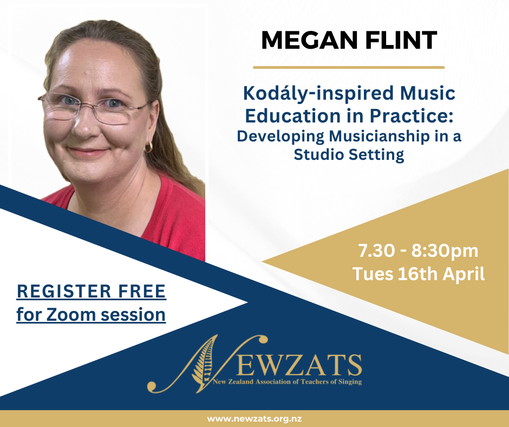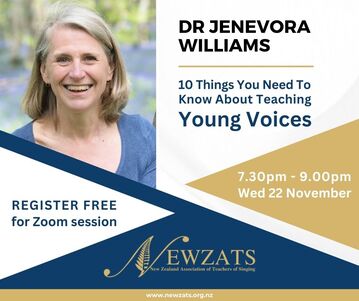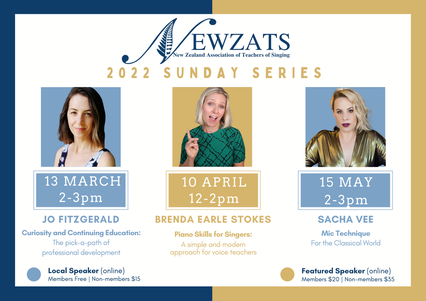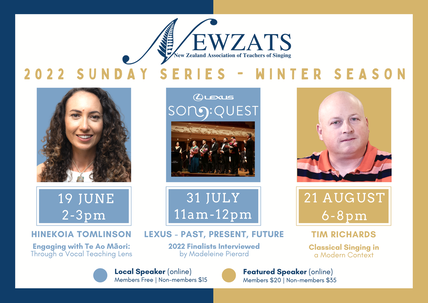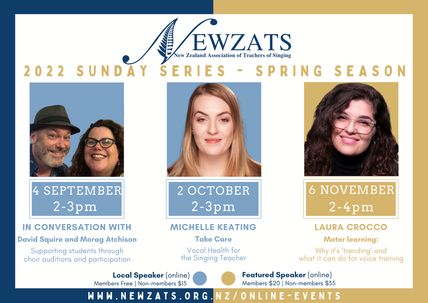|
CONNECT WITH US:
|
CONTACT US:
Mail: PO Box 5006, Lambton Quay
Wellington 6011, New Zealand Email: [email protected] Phone: +64 27 387 4847 |
© 1988 - 2023 New Zealand Association of Teachers of Singing Inc.




